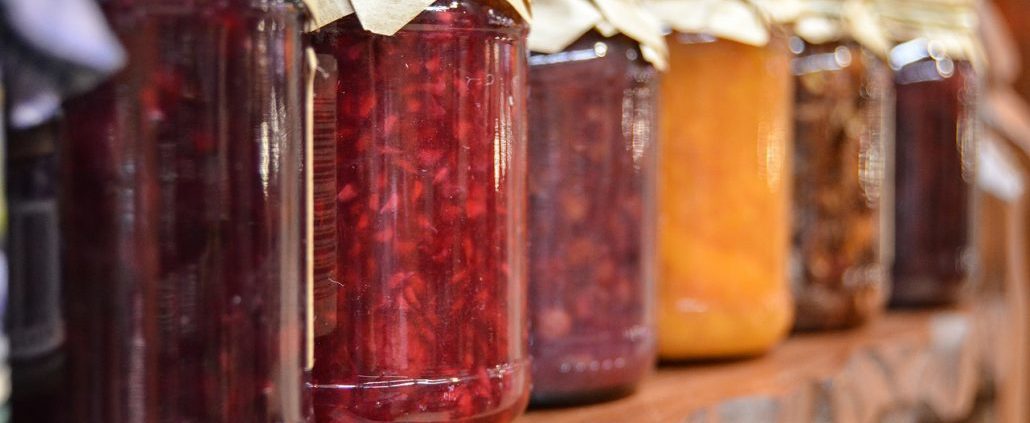Most of us either have that one secret recipe, or know a master home chef that has that amazing recipe, that everyone covets. They are constantly being asked to bring that cake, guacamole, or in my case, grits to the parties and barbecues. “This is so good, you should sell this!” is the frequent refrain until one day, you just have to take the plunge and try out your food passion as a business. Massachusetts has a growing artisan community on all fronts, but especially food. Our numerous farmer’s markets, specialty shops (both brick and mortar and online), and incubators are paving the way for local entrepreneurs to take their products to market and connect with consumers in new ways.
The idea of starting a food based business can seem a bit daunting, given all of the rules and regulations around food production, but Massachusetts has some great laws that allow you to start in your home kitchen and get a foothold in the marketplace. Often referred to as Cottage Food Acts most states have legislation that allow for home cooking to be sold to consumers.
In Massachusetts, you can have a retail residential kitchen if you are selling your product directly to the consumer, for instance farmer’s markets, direct orders, consignment, etc. If you are selling to retail stores and restaurants, you may qualify as a “Wholesale Operation”, which has a different set of rules. Residential kitchens need to be inspected and you need to secure a permit. The inspection and permitting process is conducted by your local town or city board of health and the permitting costs and inspection procedures vary from town to town, but are usually low cost and don’t require expensive alterations to your kitchen. Things to think about are having a separate shelf or portion of a shelf in your refrigerator for storage of your business supplies. Keep your cooking equipment clean (you can use your dishwasher). Keep your pets out of the area while you are preparing foods for the business. If your washer and dryer are in or near the kitchen, then don’t run them while you are preparing foods. Be sure to contact your local board of health to get a full list of requirements.
The determining factor for whether you can use your home kitchen is whether you are producing non-potentially hazardous foods (non-PHFs) or potentially hazardous foods (PHF). Non-PHFs are items such as jams and jellies, most baked goods, and confectioneries. If your finished product does not require temperature control, then you are probably working with non-PHFs.
 PHFs include products with meat, dairy, baked goods with cream, custard or puddings, cooked pasta, rice, or beans, eggs, fruits and veggies, and pickled products, sauces, and relishes that need refrigeration. If your baked good uses dairy or fruits, but doesn’t require refrigeration once cooked, then it is likely going to be classified as a non-PHF.
PHFs include products with meat, dairy, baked goods with cream, custard or puddings, cooked pasta, rice, or beans, eggs, fruits and veggies, and pickled products, sauces, and relishes that need refrigeration. If your baked good uses dairy or fruits, but doesn’t require refrigeration once cooked, then it is likely going to be classified as a non-PHF.
So, we have a licensed residential kitchen creating non-PHFs for sale directly to the consumer. There are still a few more requirements: 1. You have to comply with the state labeling requirements (see link below); 2. Only household members can be employees of the business; 3. You can’t use brokers, wholesalers, or a warehouse to store, sell, or distribute your product; and 4. You can’t sell your product out of state. (For a full explanation of the rules, see the link below).
If you are creating a product that is considered to be a PHF or growing out of your home kitchen, you have options. There are several communal commercial kitchens available in Massachusetts and more getting started each year. These kitchens allow you to time-share the space, so that you get all the benefits of a commercial kitchen at a price that works for the entrepreneur. Check out Crop Circle Kitchen.
Now you have an entity (always important), a license, and a permitted kitchen. You are ready to sell. Be sure to get acquainted with your local famer’s markets. Pay special attention to Undiscovered Kitchen, a local business that is launching soon, creating a market place for artisan food products. Be sure to review the additional information provided below.
Resources:
Sam Adam’s Brewing the American Dream (great opportunity for education, support, and financing)
Jessica R. Manganello, Esq. is a business attorney with New Leaf Legal, LLC. Her focus is on sustainable and social minded businesses, with a passion for food and building a local economy.



